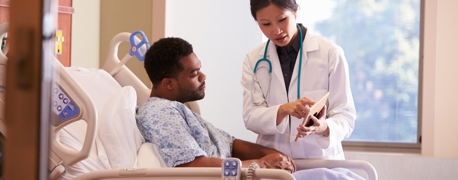What Is the Role of an Expert Witness in a Personal Injury Case?

If you’ve filed a personal injury claim or are considering one, you may hear your attorney mention bringing in an expert witness. These individuals can play a powerful role in helping you prove your case by explaining complex issues, like how the accident happened, how serious your injuries are, or how much your future care will cost.
But what exactly is an expert witness, and why are they so important in personal injury law? Here’s what you need to know.
What Is an Expert Witness?
An expert witness is someone who has specialized knowledge, training, education, or experience in a particular field that goes beyond what the average person would know. Their role is to provide insight into technical or complicated subjects that are central to your case.
Expert witnesses don’t testify about what they saw or heard like an eyewitness would. Instead, they offer professional opinions based on the facts of the case and their area of expertise.
That might include:
- Writing formal reports
- Analyzing evidence
- Offering deposition or trial testimony
- Helping the jury understand difficult concepts, like how a spinal injury affects long-term mobility or what caused a machine to fail
In other words, expert witnesses help bridge the gap between technical knowledge and legal decision-making.
Why Expert Witnesses Matter in Personal Injury Cases
In many personal injury claims, the basic facts aren’t in dispute: there was a crash, there was an explosion, there was an injury. But what is often in dispute is how it happened, why it happened, and what the long-term impact will be. That’s where expert witnesses come in.
Depending on the case, expert testimony may be needed to help:
- Prove that a doctor or surgeon violated the standard of care
- Reconstruct a truck accident and determine vehicle speeds or driver behavior
- Explain the mechanics of a refinery explosion
- Estimate the lifetime cost of care for a catastrophic injury
- Connect psychological trauma, like PTSD, to the events of the accident
Jurors aren’t expected to be engineers, physicians, or economists. Courts allow qualified experts to educate the jury and clarify the evidence so that it can make informed decisions about liability and damages.
Common Types of Expert Witnesses in Injury Cases
The type of expert needed depends on the circumstances of the case. For example, a medical malpractice case may require testimonial from a medical professional regarding the accepted standard of care. A case involving a plant or refinery explosion may depend on expert testimony from engineers who can describe how certain safety mechanisms failed.
Here are some of the most common expert witnesses in personal injury law:
- Medical Experts: This includes doctors, surgeons, or specialists who can explain the nature of your injuries, the required treatment, and any long-term consequences. In cases involving medical malpractice, these experts are essential for showing how a provider failed to meet the standard of care.
- Accident Reconstructionists: Often used in motor vehicle accident or industrial injury cases, these experts use physics, engineering, and scene evidence to determine how an accident occurred and, importantly, who or what caused it.
- Engineering Experts: Useful in product liability, construction site injuries, or industrial accidents, engineering experts may examine defective machinery, structural failures, or unsafe conditions. They can help provide critical testimony proving the root causes of workplace accidents and other disasters.
- Vocational Experts: Vocational experts help evaluate how your injuries affect your ability to work or earn a living. They may testify about your likely career prospects, physical restrictions, or the availability of suitable jobs given your injury.
- Economists and Life Care Planners: These experts help calculate future damages, like lost earning capacity or the cost of long-term medical care, and can be especially helpful in catastrophic injury cases, where long-term damages are both common and significant.
- Mental Health Experts: This includes psychologists or psychiatrists who can clearly explain emotional injuries—like anxiety, depression, or PTSD—resulting from the incident, as well as how these injuries will affect your life.
Each expert brings a unique perspective. Together, their testimony can be critical to building a strong, persuasive case.
Who Can Serve as an Expert Witness?
Not just anyone with a degree or professional title can serve as an expert witness. Courts take expert testimony seriously, and they won’t allow it unless it meets strict legal standards.
In Texas (and in federal court), the admissibility of expert testimony is governed by the Daubert standard, named after a U.S. Supreme Court case Daubert v. Merrell Dow Pharmaceuticals, Inc. Under Daubert, the trial judge acts as a “gatekeeper,” ensuring that any expert testimony presented to a jury is both relevant and reliable.
To be admissible, the expert’s testimony must:
- Be based on sufficient facts or data specific to the case
- Rely on scientifically valid principles and methods
- Apply those principles reliably to the facts in question
- Actually help the jury understand a key issue in the case
In other words, a big-name expert with impressive credentials won’t be allowed to testify if their methods are shaky or their conclusions are speculative. The court needs to know that the expert’s opinions are rooted in real evidence and sound reasoning.
This gatekeeping function helps ensure that only credible, useful expert testimony reaches the jury. It also underscores why it’s so important to work with attorneys who know how to select the right experts—and how to present their findings effectively.
Expert Witnesses vs. Treating Physicians
It’s worth noting that not all doctors who testify in a personal injury case are expert witnesses. A treating physician—your own doctor or surgeon—may testify about your injuries, treatment, and recovery. They can explain what they saw firsthand while caring for you. But when deeper analysis is needed, like an opinion on future surgeries or the connection between your injury and the accident, you may also need an independent medical expert who was brought into the case specifically to offer expert analysis. This expert may review your medical records, perform an independent exam, and testify on issues beyond the scope of your treating doctor.
Why It Matters: Expert Witnesses Can Make or Break a Personal Injury Case
Expert witnesses are not optional in many serious personal injury cases. They’re essential. Their testimony can help prove the cause of an accident, support the extent and impact of your injuries, and strengthen the value of your claim. Expert testimony can also help undermine weak defenses and speculative arguments from the other side.
In complex or high-stakes cases, expert testimony often becomes the backbone of a successful trial strategy. And while the jury ultimately decides the outcome, expert witnesses help ensure they have the full context they need to make the right call.
At Arnold & Itkin, we prepare every case for trial. Our personal injury team works alongside renowned expert witnesses to gather critical testimony that supports our clients’ claims. We know how to prove negligence, and we know how to hold negligent parties accountable for the terrible harm they have caused you and your family.
- Categories


